Advertisement
Cambridge stakes over $45 million on a sleek new community arts space
Resume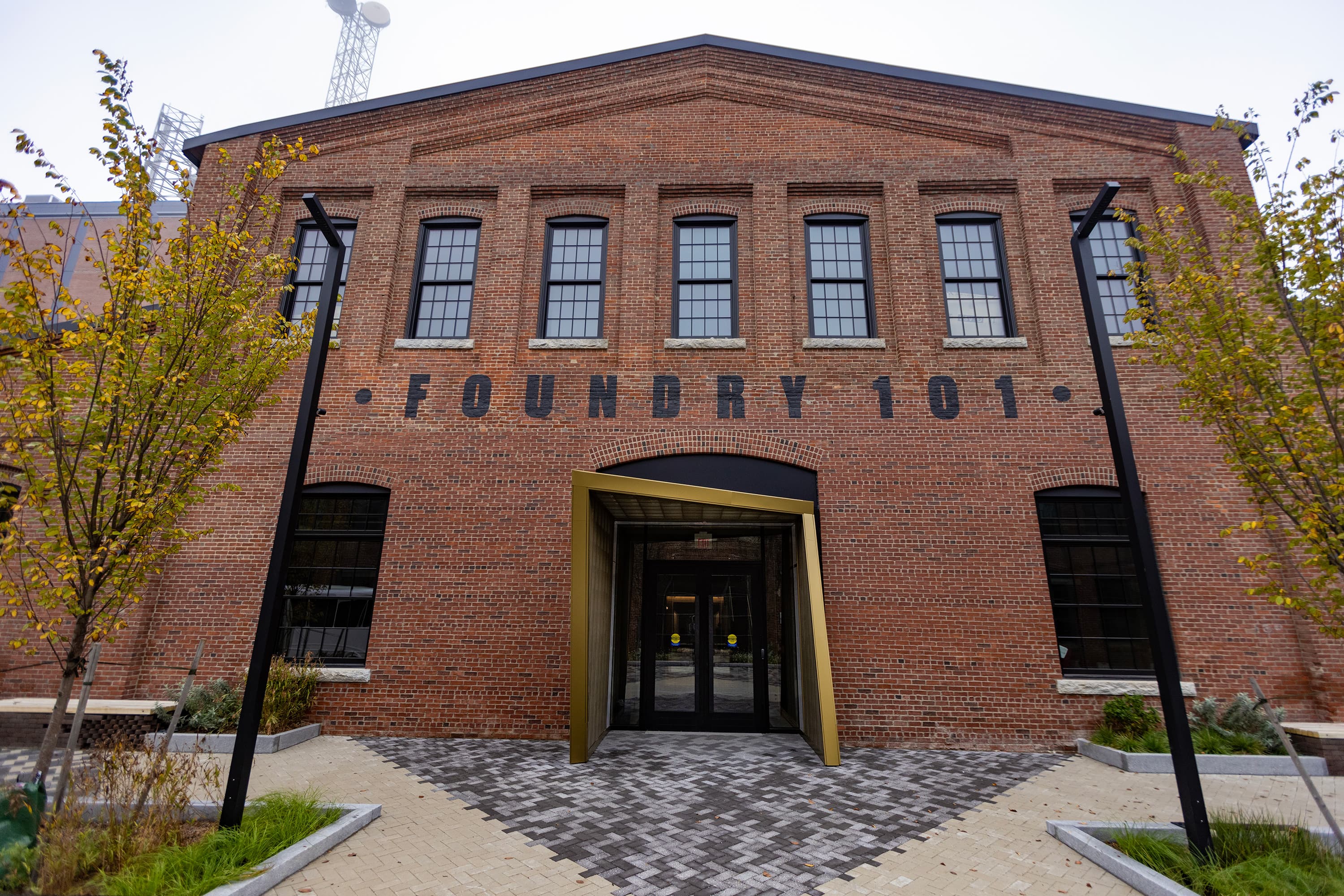
It isn’t every day that a city drops $45.5 million to transform an old industrial building into a gleaming new community arts center. But that’s more or less what the city of Cambridge did with The Foundry, a maker space near Kendall Square that opened last month.
The opening celebration took place on a sunny autumnal weekend. A band played “When the Saints Go Marching In” inside The Foundry’s vast atrium, which stretched three stories to a skylight in the roof.
At a table by the stairs, Lloyd Williams was selling his paintings, bright renditions of familiar Boston scenes: the Bolling Municipal Building in Nubian Square, the swan boats in the Public Garden. Williams was excited to be inside the newly renovated building, with its exposed brick walls and tall windows. He hoped it might fill the void left by art galleries forced to close in the pandemic.
“That's what artists need: they need a space to display their art,” he said. “After the pandemic, the only place that I could sell my art was out on the street.”
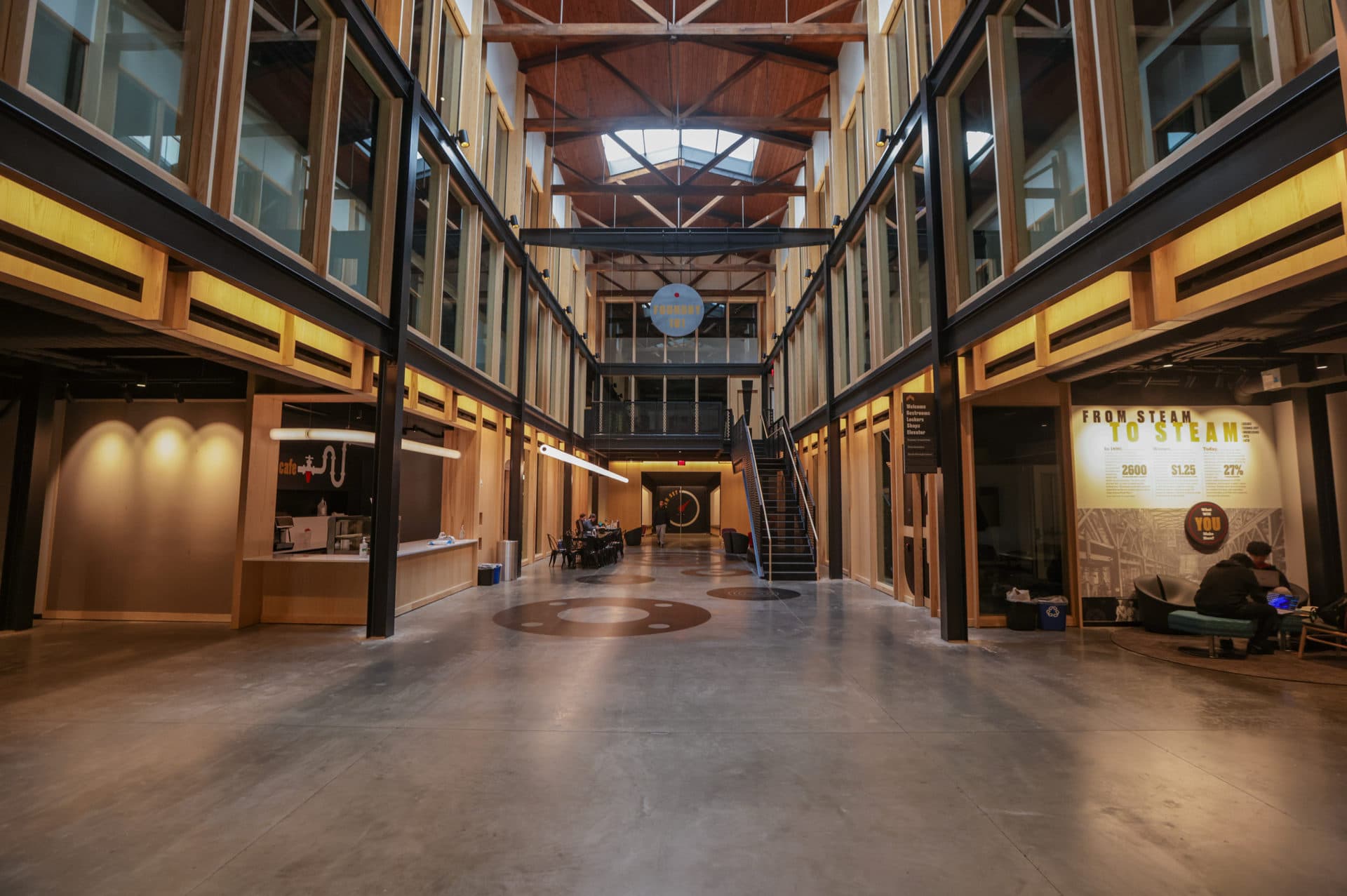
With The Foundry, Williams saw an opportunity to bring his art inside. The 50,000-square-foot former steam pump factory has gallery space, a black box theater, a dance studio, metal and fiber workshops, a kitchen, art studios, conference rooms and more — all available for public use. Williams was fairly sure he qualified to use the gallery space for free, thanks to The Foundry’s sliding-scale rental model.
This shiny new facility was anything but a foregone conclusion. The story begins way back in 2009, when Alexandria Real Estate Equities, the company that owned The Foundry, agreed to give it to the city in exchange for approval on a rezoning that would allow the company to develop in Kendall Square. It was another three years before the property was transferred, and only then did the process of figuring out what to do with the building begin.
The Cambridge Redevelopment Authority, which holds a 50-year lease on The Foundry, was tasked with developing a use for the space. In 2013 and 2014, the CRA held public forums to refine a community vision. Many ideas were floated, from youth programs to workforce training to childcare. There was a strong showing from advocates of the arts, who were anxious about the displacement of dance and art studios due to development and ballooning property values. So a plan was hatched to transform The Foundry into a community center with a significant arts component.
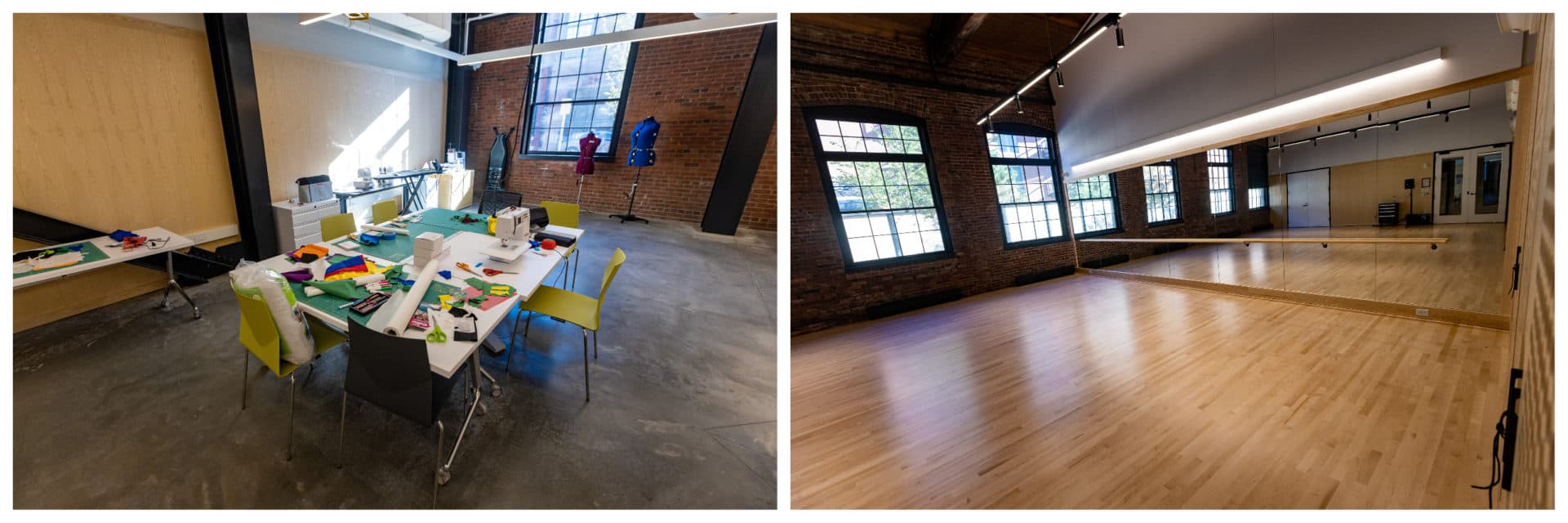
Initially, the CRA tapped a developer to help shoulder the cost of renovating and operating the building. But soon, concerns arose that a private developer, looking to recoup its investment, would be too focused on profit.
“The concern was that the market forces and market interest would always drive to price out the community uses,” said CRA executive director Tom Evans.
So the city pivoted — hard — and decided to undertake the renovation of the historic building on its own. The Foundry was built in 1890 and was originally used to process iron; it enjoyed a brief life as a taxi barn before being retrofitted for offices in 1982. By the 2000s, the structure had fallen into disrepair and would require significant upgrades to meet modern building codes.
In the end, a sleek adaptive reuse design by the architecture firm CambridgeSeven cost $45.5 million, with $35 million contributed by the city and $10.5 million by the CRA.
“It’s a huge investment,” Evans said. "The reason we were able to do this kind of investment is because of Kendall Square and the economic vitality of Cambridge."
The hope is that The Foundry will help make up for the losses incurred by ruthless economic growth. Since the building's acquisition, a crop of arts spaces in Cambridge have shuttered, including Out of the Blue Too Gallery, the EMF artist space and Green Street Studio. The Foundry could serve as a model for other cities trying to mitigate this trend.
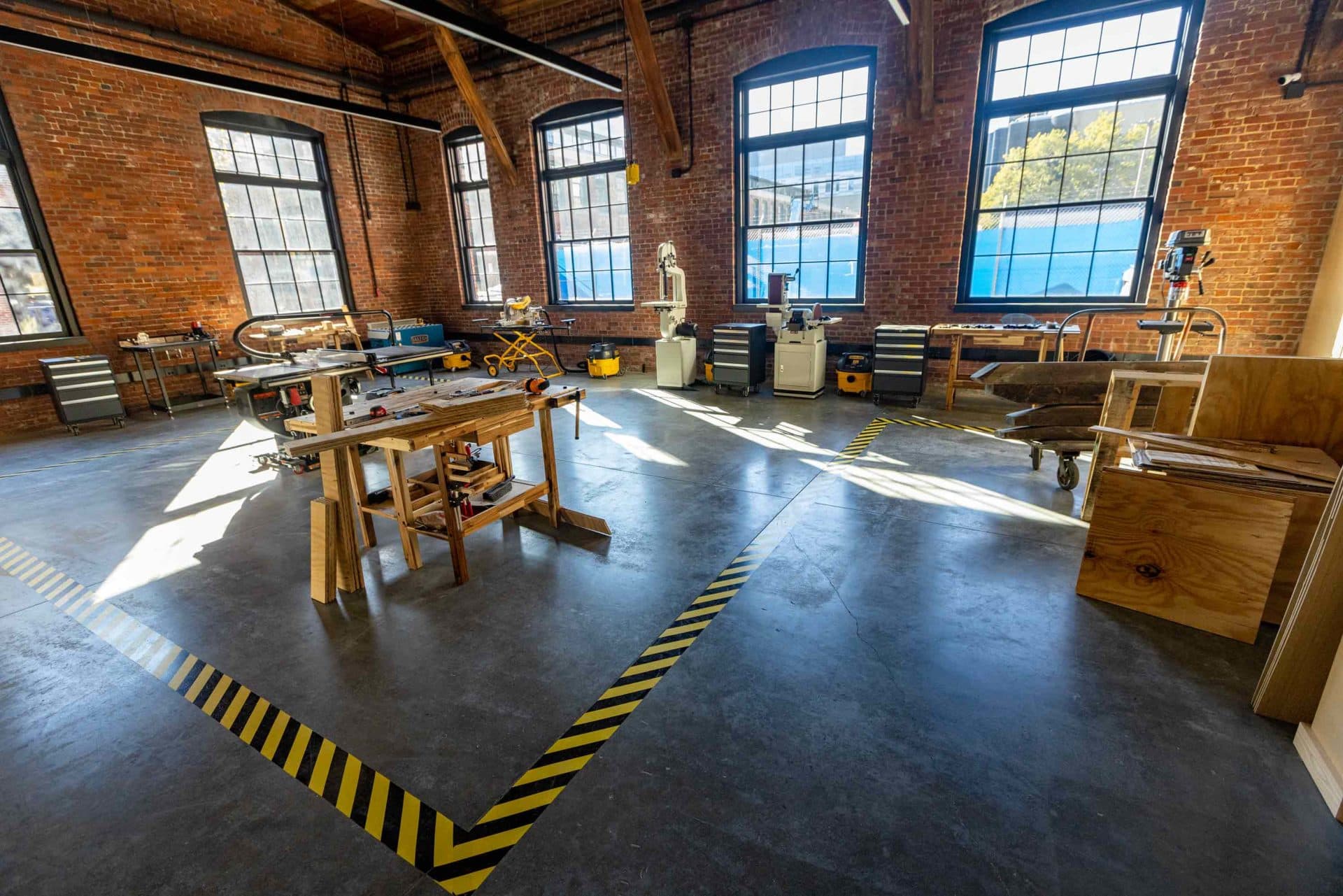
It's one thing to build a space for the public — but will the public use it? Will it reach the people you intend to reach?
In many ways, the hard part has just begun.
“The project itself is a major prototype,” said Diana Navarrete-Rackauckas, the executive director of The Foundry Consortium, the nonprofit that operates the Foundry. “One of the main missions of The Foundry building is to really address the spatial and equipment inequities that come with being a maker in the area. And so because of that, our main constituents are the folks who do not have access to space and to equipment like this.”
Hence the sliding scale rental scheme. The Foundry will not require individuals or organizations to supply documentation of their eligibility. “That is a very conscious decision,” Navarrete-Rackauckas said. “We really believe in the importance of building trust in community, and this is a space that is really meant to work on an equity basis.”
Space is also available at a commercial rate, though community use is supposed to be prioritized. After all, the whole reason for the city taking on the project was to prevent a corporate takeover. “Anything more than 20% use for these commercial uses … would feel like we were failing as an organization,” Navarrete-Rackauckas said.
Due to its proximity to Kendall Square, The Foundry brands itself as a STEAM (science, technology, engineering, art and math) facility — that is, a place where art and tech co-mingle. Along with metalwork equipment and dance classes, you'll find 3D printers and lecture series about the intersection of art and science.
It’s a more natural marriage than you might think, said Foundry board member Joyce Chen. “The iPhone that you're holding was designed by a designer with an arts background,” she pointed out. “The problems that we're going to need to solve in the future will need to be interdisciplinary and really require collaboration across all these different groups.”
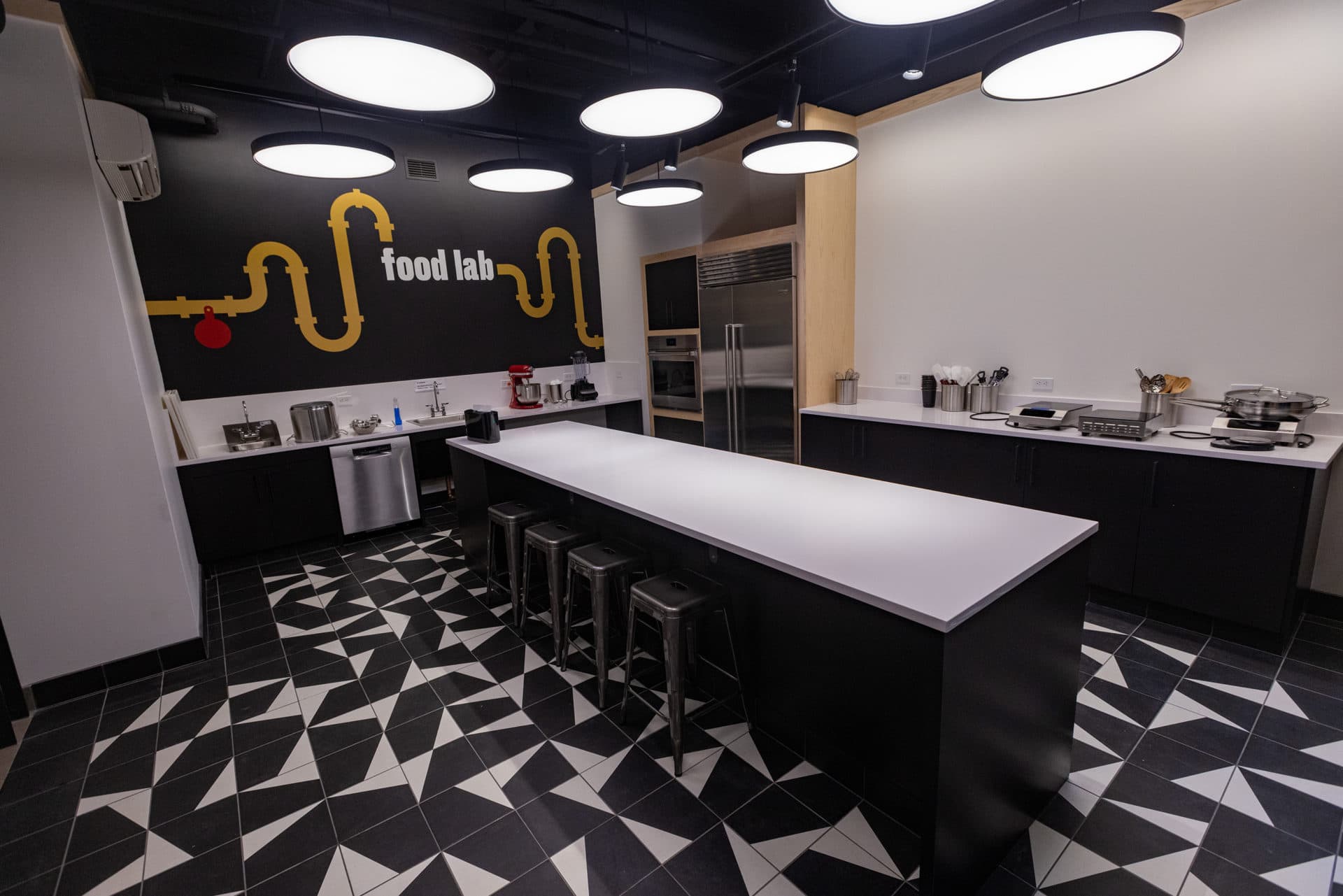
The Foundry aims to cast a wide net, for use by hobbyists, professionals, small businesses, corporations and nonprofits. But a space that tries to be all things to all people may not be targeted enough to fulfill some of its promises. For instance, many artists hoped The Foundry would provide desperately needed studio space.
“You could put a hundred studios here, you know, and rent them out to local artists,” said Cambridge resident Michael Shia, who submitted a proposal along those lines. Instead, The Foundry has eight reservable workspaces in a large open room.
“I don't think it's going to meet the kind of criteria that [artists] need to to be usable,” he said.
Shia, who serves on The Foundry Advisory Committee, was more optimistic about other creative uses the building might facilitate. “I think as a teaching space it will work and maybe as a gallery space it could work," he said. "The black box theater is phenomenal. I think that's the one shining star in this place right now, because that will be used a lot.”
And then there is the issue of money. Most of the building’s substantial operational costs are covered by renting out office space upstairs. But Chen said The Foundry Consortium still needed some help funding its approximately $500,000 annual budget.
“Yes, the building has money to be self-sustaining, to keep the lights on,” Chen said. “But can we actually keep this building filled with life?”
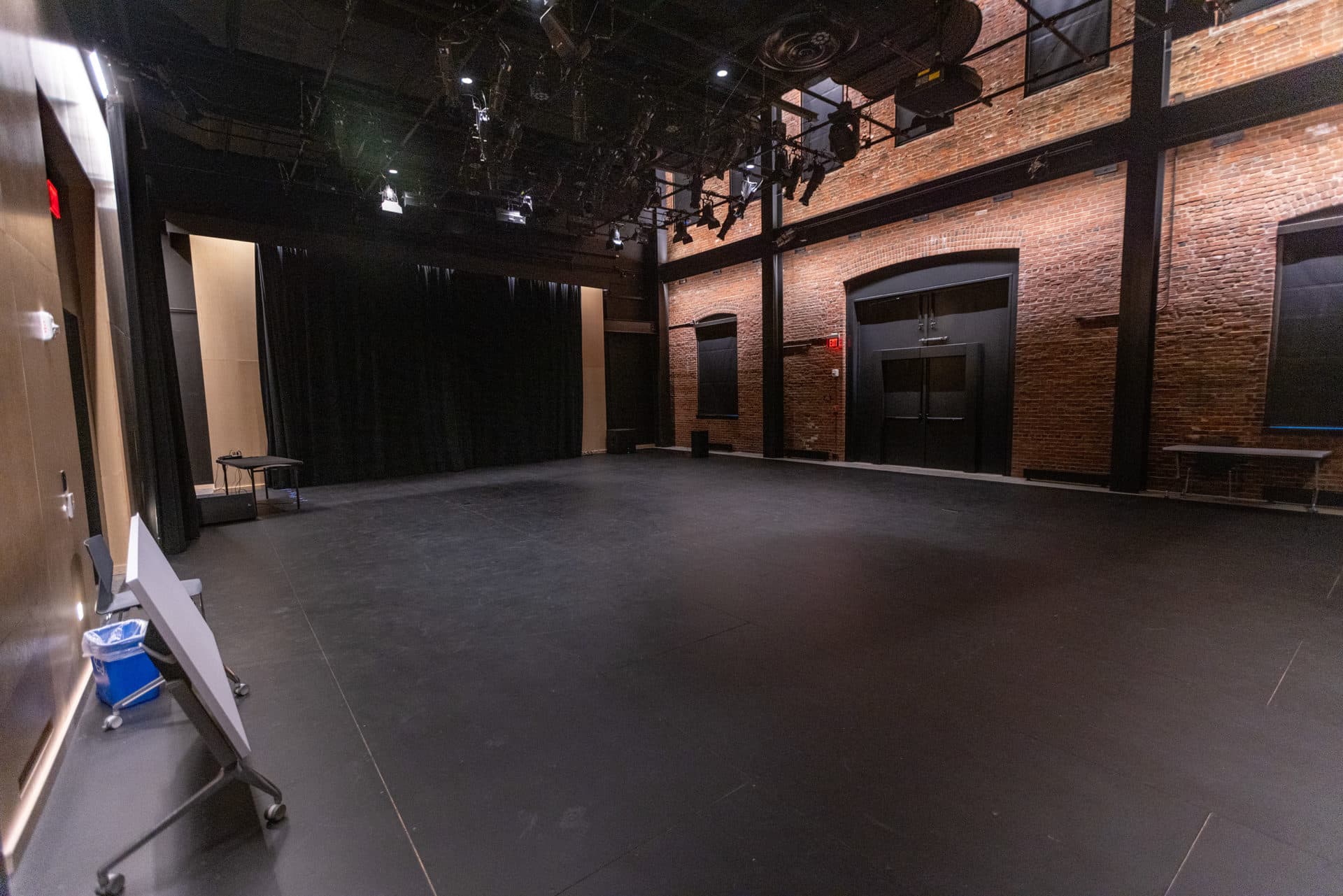
The building was certainly lively on opening day. The strains of bachata and salsa music filtered out of a dance class in the black box theater, while people queued up for free lunch in a line snaking down the patio outside. The atrium hummed with excited chatter.
Nine-year-old Magnus Lainez, who came to the celebration with his mom and sibling, paused briefly to offer his assessment of the space. After some consideration, he gave The Foundry 4.5 out of 5 stars, “because it’s pretty big, and it has a lot of scenery.”
That's just one man's opinion of The Foundry. A bigger picture will emerge over time, as The Foundry Consortium collects data — on how much use the space is getting, for what purposes and by whom — in an attempt to take a true measure of Cambridge's big bet.
